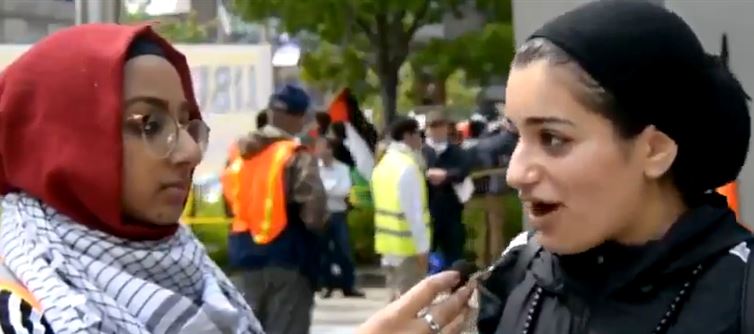
The rally took place in canada, a country known for its multicultural policies and commitment to diversity. However, the woman's statements reflect a growing trend of criticism from some segments of immigrant communities, particularly those with ties to the Middle east, who view Western nations through the lens of historical colonialism and current geopolitical conflicts. The presence of MEMRI TV, an organization that monitors and translates Middle east media, suggests the event was deemed significant enough to document and disseminate widely.
 Critics of the woman's statements argue that her rejection of Canadian identity is ungrateful, given the opportunities and protections canada offers to immigrants. They point out that canada has a history of welcoming refugees and providing a safe haven, which contrasts sharply with the woman's characterization of the country as a colonial project.
Critics of the woman's statements argue that her rejection of Canadian identity is ungrateful, given the opportunities and protections canada offers to immigrants. They point out that canada has a history of welcoming refugees and providing a safe haven, which contrasts sharply with the woman's characterization of the country as a colonial project.This incident raises several important questions about immigration, integration, and national identity in canada and other Western countries. It highlights the tension between the expectations of host nations for immigrants to assimilate and the right of immigrants to maintain their cultural and political identities. The debate also touches on the role of historical narratives in shaping current perceptions and the challenges of addressing past wrongs while building a cohesive society.
The woman's comparison of canada to Israel, both labeled as colonial projects, adds another layer to the discussion. It suggests a worldview where Western nations are seen as complicit in global injustices, a perspective that can alienate those who view these countries as bastions of democracy and human rights. This comparison also risks oversimplifying complex historical and political situations, potentially fueling further division.




 click and follow Indiaherald WhatsApp channel
click and follow Indiaherald WhatsApp channel